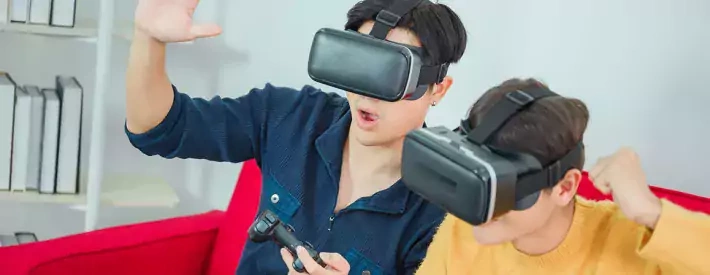How the recruitment process is becoming gamified

Companies are changing the way that they recruit talent, and games are becoming a legitimate method to choose candidates
We all either know someone who’s an avid video gamer, or maybe we partake ourselves. And is it any wonder, the video game industry generates revenues of over $153 billion a year and you can’t move during the festive period for new console and game releases. But it’s much more than just entertainment.
Video games are being used to drive recruitment and it’s a growing trend. Success stories include French postal service Formaposte, which saw dropout rates among new hires fall from 25% to 8% after introducing candidates to a game in which they could live the life of a postman for a week. Other big names to adopt gaming as part of their hiring processes included hotel chain Marriot, Domino’s Pizza, L’Oréal and Danone.
The latest company to turn to gaming is investment bank JP Morgan, which is testing neuroscience-based video games to help recruit interns. The bank is working with start-up Pymetrics, whose games are designed to assess applicants’ social, cognitive and behavioural features including memory, attention and altruism. Candidates’ attributes are then measured against those of successful existing employees to identify the ones with the most potential.
JP Morgan, like so many other companies before them, is choosing to use games as part of the recruitment process for a number of reasons. First and foremost, by using games they can get a better, more tangible idea of a candidate’s skills than the traditional route of CVs and interviews may be able to provide. Especially in the case of graduates, who generally have much less work experience to assess, so games can help to gain that crucial insight into the types of skills they possess.
Games can also help make the recruitment process fairer as there is considerably less space for unconscious bias to seep in.
Last but not least, games can make the recruitment process more fun and engaging, giving candidates a real feel for the company culture.
It isn’t only video games
So what types of games can you expect to come across? Video games like the one used by JP Morgan are just the tip of the iceberg. There are companies using escape room games to assess candidates, both online and in real life. Games related to sports such as glow golf – which is basically crazy golf in the dark – cooperative board games and laser tag are also being used. While they may seem nothing more than a bit of fun, these games can actually give assessors valuable insights into candidates’ skills including how they work with others, how they communicate and their decision-making processes.
While game-based recruitment may not be overtaking more traditional ways of vetting candidates any time soon, there is definitely a growing interest in these types of recruitment, with a recent survey by GolfSupport.com showing that 68% of the 1,456 surveyed companies would be interested in using cooperative board gaming as a way to vet candidates, while 73% said they would try laser tag.
The approach isn’t solely about recruiting new people, it's also about developing and motivating current employees and improving their health and well-being: Games tap into our innate competitiveness and each time we play we feel more engaged, addicted even, and a get sense of achievement that encourages even the least enthusiastic of us to make those extra sales calls or complete more training programmes. In a report entitled The Future Of Gamification it was suggested that the principles of gamification could actually improve creativity, learning, participation and motivation.
So whether you're looking for a job or looking to improve your own work-life balance, playing a few games seems to be the way forward.




